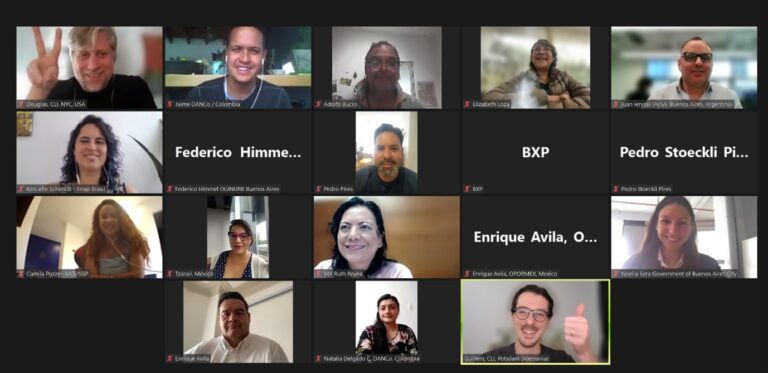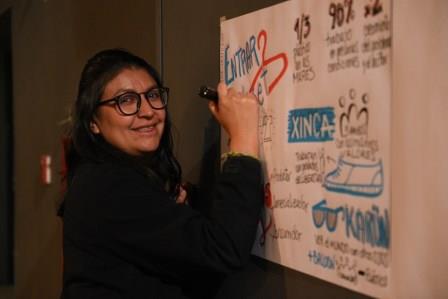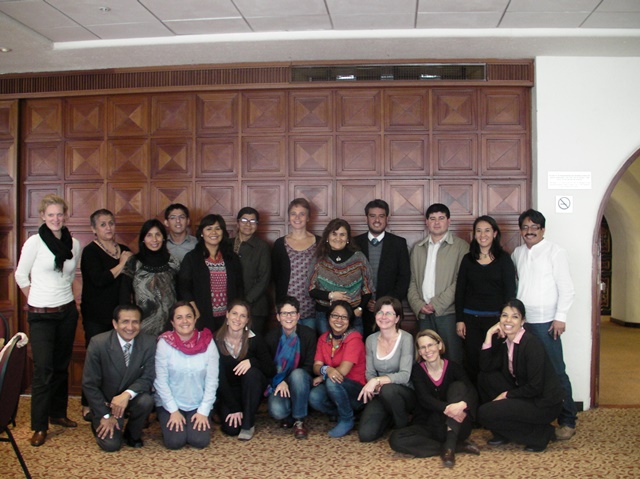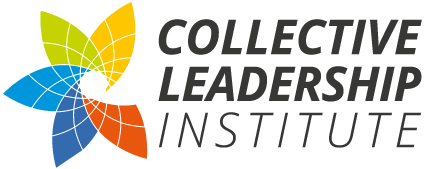CLI implemented a training in Spanish with the objective to strengthen the capacities of coordinators and/or coordinating groups of selected Danida Fellowship Centre alumni networks in Latin America in network building and management, stakeholder engagement and communication. Participants from Argentina, Brazil, Colombia, and Mexico joined.

Project time: 2024
Sector(s): public sector, civil society, private sector
Main SDG: 4 Quality Education
Stakeholders: 14 coordinators and/or coordinating groups of selected Danida Fellowship Centre alumni networks in Latin America
Outcome: A consolidated container for change for each country, participants started creating synergies to support each other´s networks, as well as space was offered for further regional cooperation, as well as strengthened capacities in network building and management, stakeholder engagement and communication with a goal achievement of 4.64 of 5.00.
CLI Project Managers: Douglas F. Williamson, Guillem Vallbona

Villgro USA, CoCreative, and the Collective Leadership Institute are stewarding a participatory process among leading actors in the impact space to co-design an innovative and impactful network that focuses on incubators in the Global South. The network building process gained significant momentum and claritythrough a series of focused Design Team Meetings outside of Nairobi, Kenya, interspersed with two hybrid Co-Design Workshops.
Project time: 2023
Sector(s): civil society, private sector
Main SDG: 9 Industry, Innovation and Infrastructure
Stakeholders: incubators, entrepreneurs, academia, foundations, and networks
Outcome: A network mission emerged, network strategies were created, network products like an investor pitch, a network invitation kit, a member’s guide for network governance, and a sample monthly newsletter were co-designed.
CLI Project Manager: Dominic Stucker

CLI Managing Partner Dominic Stucker had the pleasure of contributing to MultiCultural BRIDGE’s inaugural “Inclusive Leadership: A Force for Change” program in 2021. The program, organized in partnership with the Berkshire Taconic Community Foundation, Greylock Federal Credit Union, and Berkshire Bank, supports Berkshire County leaders across sectors in becoming “catalysts for embedding diversity, equity, and inclusion (DEI) within their organizations and companies.” Thirty-eight executive directors, CEOs, Board members, and other leaders from arts organizations, businesses, educational institutions, and non-profit organizations have fully engaged in the program and formed the first Inclusive Leadership Cohort (ILC).
Project time: 2021-2023
Sector(s): civil society, private sector
Main SDG: 10 Reduced Inequalities
Stakeholders: 38 executive directors, CEOs, board members, and other leaders from arts organizations, businesses, educational institutions, and non-profit organizations
Outcome: A shared language on leading transformative change collectively was developed, stakeholders were mapped, analyzed, and key stakeholder engagement steps were initiatied, a first Inclusive Leadership Cohort (ILC) was formed.
CLI Project Managers: Dominic Stucker

CLI supported a freshly forming stakeholder system around an initiative to create a management plan for the new UNESCO Biosphere Cacique Lempira Señor de las Montañas. Three working groups in the areas of development, conservation, and logistical support were trained in stakeholder collaboration and collective leadership skills. Eight of the participants were certified as Collective Leadership Specialists throughout the whole process between December 2019 and March 2020.
Project time: 2019 – 2020
Sector(s): public sector, civil society, private sector
Main SDG: 15 Life on Land
Stakeholders: 17 stakeholders from governmental organisations, civil society, universities, and private sector entities from the coffee sector
Outcome: Stakeholders formed three working groups, created process architectures in a two-year horizon, and created a management plan for the biosphere.
CLI Project Managers: Douglas F. Williamson, Sabine Heckmann

CLI entered into a year-long partnership agreement with Engagement Global’s Mentoring for Education for Sustainable Development Leadership Programme. The programme is for twenty young professionals from Germany, India, Mexico and South Africa working in the field of Education for Sustainable Development (ESD). As part of the programme’s offering in competencies in the areas of project management and ESD-Leadership, each mentee is partnered with an ESD Expert mentor for support in the realization and implementation of the mentees’ sustainability projects. CLI facilitates online and offline Project Management and Leadership learning sessions.
Project time: 2019
Sector(s): civil society
Main SDG: 17 Partnerships
Stakeholders: 20 young professionals from Germany, India, Mexico, South Africa in the field of education for sustainable development
Outcome: Mentees develop an understanding of leadership in the context of social change, strengthen their personal development, develop leadership skills at individual-, process-, and systems level; and successfully apply CLI methodologies in practice.
CLI Project Managers: Alina Gruen, Lulekwa Gqiba
All mentees of the Mentoring for Education for Sustainable Development Leadership Programme have made incredible progress this year and have outgrown themselves. We are touched and very happy that we were able to work and grow together with the 20 young people.
The exchange and intensive cooperation with the mentees and the Engagement Global Team has been a great pleasure.
Here you can see some selected projects:
- THE MAP OF TOMORROW – All the best on one map
The world is full of explorers, and full of things to be explored: The Map of tomorrow is an interactive online platform for initiatives of change and sustainable businesses. Organic farming, open gardens, free educational initiatives and, of course, visionary cohabitation are just some of the examples. Please find more information on this project here.
- ECOLOGICAL REGENERATIVE CENTER: FOR EDUCATION IN SUSTAINABLE DEVELOPMENT
Educational and interactive place, aimed to experiment and induce the autonomous regenerative development,
producing deep changes in Individuals and communities that led to a deeper conscious about nature and our
relationship with sustainability. Please find more information on this project here.


The Multi-Stakeholder Partnership for a Sustainable Orange Juice Value Chain from Germany, Europe to Brazil by the Christliche Initiative Romero (CIR) aims to improve the working conditions of farmers and manufacturers and wants to strengthen civil society as well as unions in Brazil. For this CIR is working with traders, unions, local communities, academia in Germany and Brazil as well as international platforms in Europe. CLI supports CIR through a long-term capacity development for structured and goal oriented dialogue, facilitation and cooperation with the stakeholders from the diverse collaboration systems along the supply chain. As of 2019, these core actors have succeeded in creating a skilled core team in Germany committed to give Brazilian workers a voice so that they can design alternatives for their pathway towards respected core labour standards and fundamental social rights.
Project time: start 2018 – 2020
Sector(s): civil society, private sector, public sector
Main SDG: 8 Decent Work and Economic Growth
Stakeholders: Orange juice farmers, manufacturers, traders, unions, local communities, academia, international supply chain platforms
Outcome: Structured and goal oriented dialogues are developed, facilitation and cooperation skills of the core actors are strengthened, Brazilian workers have a voice to improve their working conditions for orange juice sold in Germany.
CLI Project Managers: Sabine Heckmann, Douglas F. Williamson

“How can we help governments, civil society, and entrepreneurs form effective coalitions for change?” was a working group discussion led by Dominic Stucker, Senior Project Manager at the Collective Leadership Institute (CLI), at the World Bank Global Leadership Forum 2016 in Washington, USA. The Forum was the inaugural event of the newly formed Global Partnership on Collaborative Leadership for Development (GPCL4D) that puts Leadership and Coalitions at the centre of international development practices. The GPCL4D aims to move the collaborative leadership agenda forward by creating a sustainable partnership among like-minded practitioners committed to addressing the important role Leadership and Coalitions play in promoting development solutions.
Project time: 2016
Sector(s): public sector, private sector, civil society
Main SDG: 17 Partnerships for the Goals
Stakeholders: 200 partners, leaders, and practitioners from government, private enterprise, civil society, foundations, and other international development actors
Outcome: Questions like why are coalitions important, how should they be formed and what impact can coalitions have were further explored.
CLI Project Manager: Dominic Stucker

The competitiveness of the Central American region has not increased enough to overcome certain development problems. In order to improve this situation, a cooperation between the academic, private and public sector was created in the form of the Technical Innovation Roundtable, which focuses on mid- and long-term oriented work like strengthening university education as well as short term-initiatives. The GIZ helped with the creation of this project, supports the Roundtable through strategic planning, advisory and capacity building functions and chose CLI’s stakeholder dialogue approach as a way to conduct a result-oriented process and promote change.
Project time: 2012
Sector(s): private sector, public sector
Main SDG: 9 Industry, Innovation and Infrastructure
Stakeholders: Public and privat organisations, as well as academic institutions from Honduras which introduce innovation to all sectors of Honduran society.
Outcome: Increased transparency, more clear rules of the game, common goals and benefits were reported from the Technical Round Table members.
CLI Project Manager: N/A

In 2013 CLI conducted an open course for development cooperation professionals and their project partners in Lima, Peru. 22 participants from Peru, Bolivia, Ecuador, Guatemala, and Mexico gathered for a four-day training on stakeholder dialogues. The topics of the participants’ projects were very diverse, e.g. water management, biodiversity, rights protection of indigenous people, public sector reforms, and many more. They learned to apply CLI’s Dialogic Change Model as a guiding methodology to achieve common goals with their stakeholders.
Project time: 2013
Sector(s): public sector, civil society, private sector
Main SDG: 17 Partnerships for the Goals
Stakeholders: 22 participants in fields like water management, biodiversity, rights protection of indigenous people, and public sector reforms.
Outcome: Capacity in CLI’s Dialogic Change Model was built, six month actions plans for next steps developed.
CLI Project Manager: Alejandra Mueller
